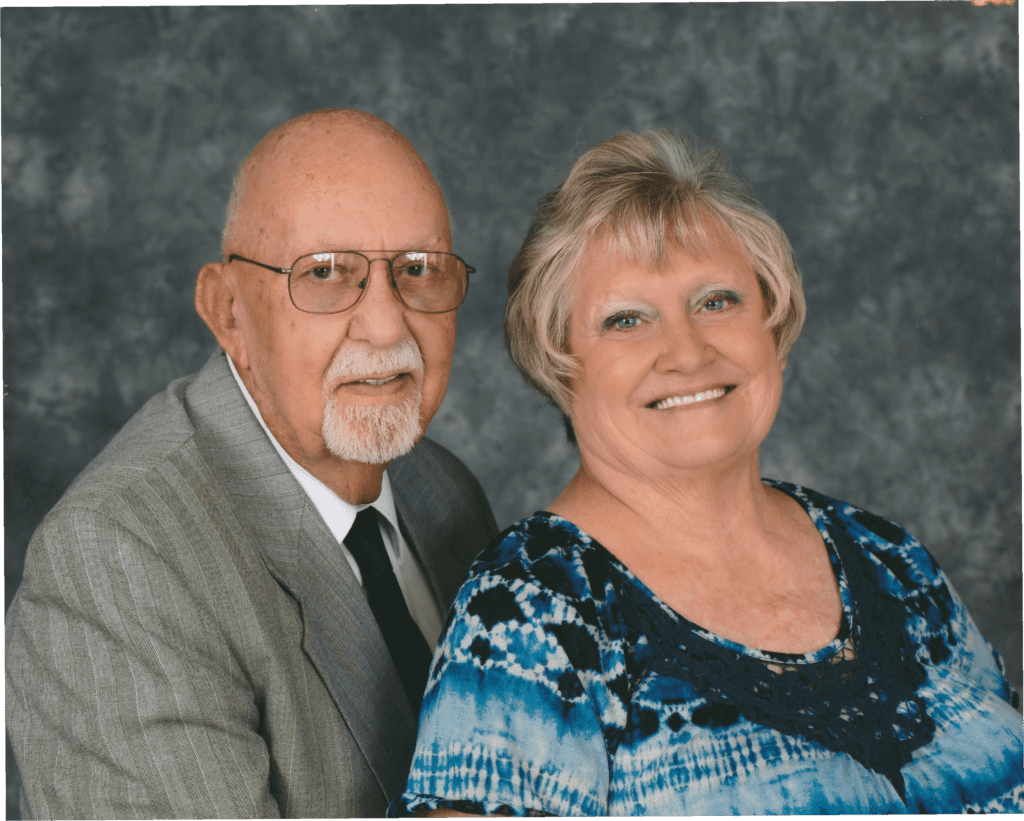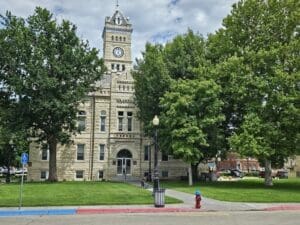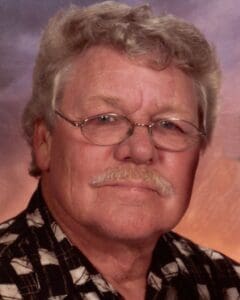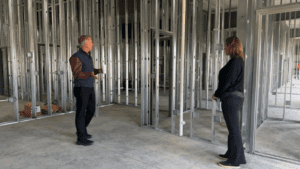In 1993 the first Relay for Life came to Clay Center. The nationwide cancer fundraiser walk was held at the former Otto Unruh track, where donors brought in more than $6,000. The following year they doubled that, said Linda Underwood.
Then in 1995, Underwood had a different idea: to help fill in some of the gaps associated with a cancer patient’s medical bills. That year she helped organize her first fundraiser.
“There was a lot of things – through the Cancer Society – that we couldn’t provide to the patients,” Underwood said. “They got rides to and from appointments, but as far as the bills or other medical expenses, we couldn’t help with that type of stuff.”
That year a fundraiser was held for Lanny Siebold, who later passed away in 1999.
From there, Underwood said, there was one benefit a year, which usually takes place with a freewill donation meal or an auction on KCLY, or an auction during the meal, she said.
“Then it went to two a year and it just went up from there,” she said. “Now we pretty much do one per month.”
Now retired, Underwood now has more time to donate to volunteering.
“I do have more time that I can spend on it so that makes a big difference,” she said.
Now with a nonprofit to pass funds through the St. Paul Lutheran Church, Underwood uses the name People Helping People. It’s also registered with the Clay Center Community Improvement Foundation, which can receive grants and other donations.
The nonprofit also partners with Thrivent, which offers a base fund to purchase food for meals, etc.
“When we started with CCCIF each individual or family could get $250, then last year it went up to $500, and this year it’s up to $750,” she said. “Hopefully next year it will go up to $1,000.”
Beneficiaries of the fundraisers are usually referred to Underwood by friends or others. She will then reach out and ensure that the family wants to be helped. She will also ask them for a bio to describe their illness and whatever other details they are comfortable in sharing to the public.
Usually a fundraiser includes an hour-long on-air auction, during which listeners can call in to bid on donated items. The funds of which then go to that month’s recipient. Dinners are also held at the Methodist Church, catered by Ray’s Applemarket or Vathauer’s Catering, she said.
“We’ve been doing those meals since 2004,” she said. “We get the meat and a few sides, then we have members from our community who donate desserts or a salad. It works out pretty well, we have a good variety of food and a lot of good helpers.”
She added that volunteers help set up, tear down, wash dishes, and anything else that may need done for a fundraiser event. While businesses are imperative in helping to donate items.
“There’s a group of ladies who have consistently helped with the meals, I couldn’t do it without them. Or without the support of the community; the businesses are great.”
An in-person auction may also be a part of the fundraising that month, depending on how many donated items she receives.
“We have different auctioneers come in, or it has been a silent auction,” she said. “I have even tried myself to auction things off, they play along with me pretty good if I have to do that.”
Last year, with more than two decades of hosting donation meals, the public organized a fundraiser of their own, this time to honor Underwood. She and her spouse, Lyle, were gifted a trip to Hawaii, complete with booked entertainment, like a helicopter tour, dinner cruise, and a tour of Pearl Harbor.
“They gave it to me last year at the Relay for Life,” she said. “I couldn’t even talk, all I could do was cry. I could do it now. It was sweet. And we just had a great time.”













